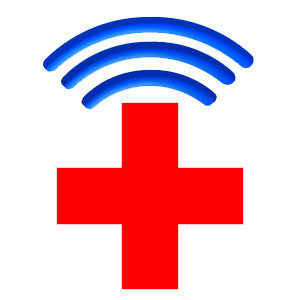
The following is a guest post. and does not represent services or advice from Mobile Health.
The use of electronic health records is on the rise across almost all medical providers, from hospitals to private practices, as providers continue to shift away from paper-based records systems in order to gain the advantages of digital records. Mobile electronic health records capitalize on the benefits of EHRs and the widespread adoption of mobile devices with applications that allow physicians and patients to access medical records on the go using mobile devices such as smartphones and tablets.
EHRs provide numerous benefits to doctors, hospitals and other medical providers, but they also benefit patients. Mobile EHRs give patients the ability to review, track and update their own medical information, helping patients better manage their own health.
Fact #1: Mobile electronic health records are very accurate.
EHRs allow physicians to accurately capture and track an array of health-related information, which means that they have patients’ entire medical history at their fingertips. EHRs also maintain an up-to-date list of current and past diagnoses and treatments, as well as an active medication list. Using a mobile device, patients can update their information at any time, giving doctors instant access to the most current information.
Fact #2: Mobile electronic health records give patients access to their own medical records.
Electronic medical records allow patients to view their medical information anywhere with an Internet connection. Mobile EHRs give patients access to view test results, pre-op and post-op instructions and clinical summaries from office visits. They can also access information on preventative care and patient reminders for exams, appointments and routine tests. In addition, they can keep track of their medications and dosages and view their vaccination records. Having their complete medical history available also makes it easier for patients who are changing doctors or visiting a specialist.
Fact #3: Mobile electronic health records increase patient safety.
By providing accurate and up-to-date patient information at the point of care, mobile EHRs help increase patient safety. Doctors and other clinical staff can more effectively coordinate care and arrive at faster and more accurate diagnoses by having access to patients’ complete medical history. They can also securely share information with other practitioners as needed to reduce medical errors and relay critical patient information. In addition, records can be checked for prescription drug allergies and potential interactions for safer prescribing.
Fact #4: Mobile electronic health records allow physicians to better share information with patients.
Patients can sometimes be overwhelmed with information during an office visit and many times, they aren’t able to retain all of the information once they leave the office. With mobile EHRs, doctors can share information with patients about their health or share links to educational resources that patients can review at their leisure as often as they need. In addition, healthcare practitioners can give patients clinical summaries and reminders for follow-up care after an appointment or hospital stay that patients can reference as needed.
Fact #5: Mobile electronic health records benefit home care patients and those with chronic illnesses.
For patients with chronic illnesses or those who are receiving home care or hospice care, mobile EHRs can reduce the number of office visits and coordinate healthcare between office-based clinicians and home healthcare providers. Mobile EHRs may also pave the way for home telehealth, virtual visits and health coaching to help patients manage diseases and other medical conditions. In addition, patients and home healthcare providers can transmit files and other patient data, such as blood pressure readings and glucose levels, to physicians which allows them to closely monitor a patient’s condition.
By Grant Webb on behalf of the University Alliance and the University of South Florida’s health informatics programs. Many health informatics graduate degree holders thrive in areas of electronic medical record keeping, as nursing informaticists, chief medical information officers and more.
